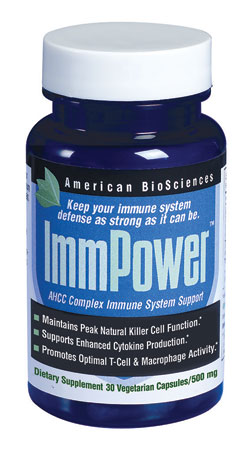Share widely!
Antioxidants and Chemotherapy
By Drs. Kay judge and Maxine Barish-Wreden
Published: Thursday, May. 31, 2012
Inflammation, and the use of antioxidants to put out inflammatory fires, is a hot topic these days. What do we mean by inflammation?
Inflammation is a natural and necessary response in the body whenever we are accosted by harmful germs or when we injure ourselves. When this occurs, our immune system steps in to fight foreign invaders and to bring our body back into balance so that we can heal.
Inflammatory chemicals are produced during this process, which can be harmful to our tissues, but antioxidants in our foods, such as vitamins C and E, help to quell this response and restore order to our tissues.
Inflammation can run amok, however, and cause persistent damage to healthy tissue, especially if we smoke or if we are overweight or obese. Chemotherapy drugs that are used to treat cancer also produce severe inflammation in the body, and this particular inflammatory response helps to kill off cancer cells. But it also harms healthy tissue in the process.
Many oncologists have been fearful of having their patients take any antioxidants during chemotherapy for fear that antioxidants might reduce the effectiveness of the chemo.
In a recent article in the journal Alternative and Complementary Therapies, Dr. Keith Block, a renowned integrative cancer specialist affiliated with the University of Illinois, discussed his review of more than 2,300 studies on the use of antioxidants during chemotherapy, and his report is very reassuring.
In summary, antioxidants often help to reduce side effects from chemotherapy, and this may allow patients to complete their full course of medication without interruption, which itself leads to better outcomes. Certain antioxidants also enhance the effectiveness of chemotherapy, reduce long-term toxicity and improve survival.
Not a single study reviewed by Block showed any evidence of antioxidants interfering with the effectiveness of chemotherapy. In fact, a recent article looking at the impact of antioxidants in Chinese women undergoing treatment for invasive breast cancer found that use of antioxidant vitamin supplements in the first six months after diagnosis resulted in a reduced risk of both mortality and cancer recurrence.
Other studies have suggested survival benefit in certain cancers when patients take melatonin, as well as reduced toxicity from chemo with the use of glutathione and coenzyme Q10 among others.
So, if you are affected by cancer, what should you be thinking about to protect yourself during and after chemotherapy? First and foremost, begin by eating a super-healthful, plant-based diet that is loaded with dark-colored fruits and veggies so that you maximize your intake of antioxidants from your food, which is the most powerful way to get them.
You can also consider supplementing your diet with some of the more powerful antioxidants, such as fish oil, coenzyme Q10, vitamin C, vitamin E and selenium, though we recommend that you meet with an integrative cancer specialist first so that you can determine which supplements are ideal for you, given your particular tumor as well as your treatment regimen.
And for those of you who have been affected by cancer, either because you or a loved one have faced this disease, there is a conference coming to Sacramento in September that you should know about. It's titled "Cancer as a Turning Point, From Surviving to Thriving," and it is a gathering of some of the best and most inspiring experts in this business.
Cancer as a Turning Point is sponsored by the non-profit organization Healing Journeys, whose vision is that everyone touched by cancer or any life-altering condition be empowered to move from surviving to thriving. This conference is usually offered in two cities across the country every year. The conference is free to all attendees, though donations are greatly appreciated to offset the cost, and donations are also tax-deductible. For more information, and to register, go to www.healingjourneys.org.
And for more information on an integrative approach to cancer treatment, look at Block's 2009 book "Life Over Cancer" (Bantam, $28, 608 pages) or Alschuler's gem that she co-wrote with Karolyn Gazella, "The Definitive Guide to Cancer: An Integrative Approach to Prevention, Treatment, and Healing" (Celestial Arts, $25, 496 pages), now in its third edition.
~ Be Well! ♥



